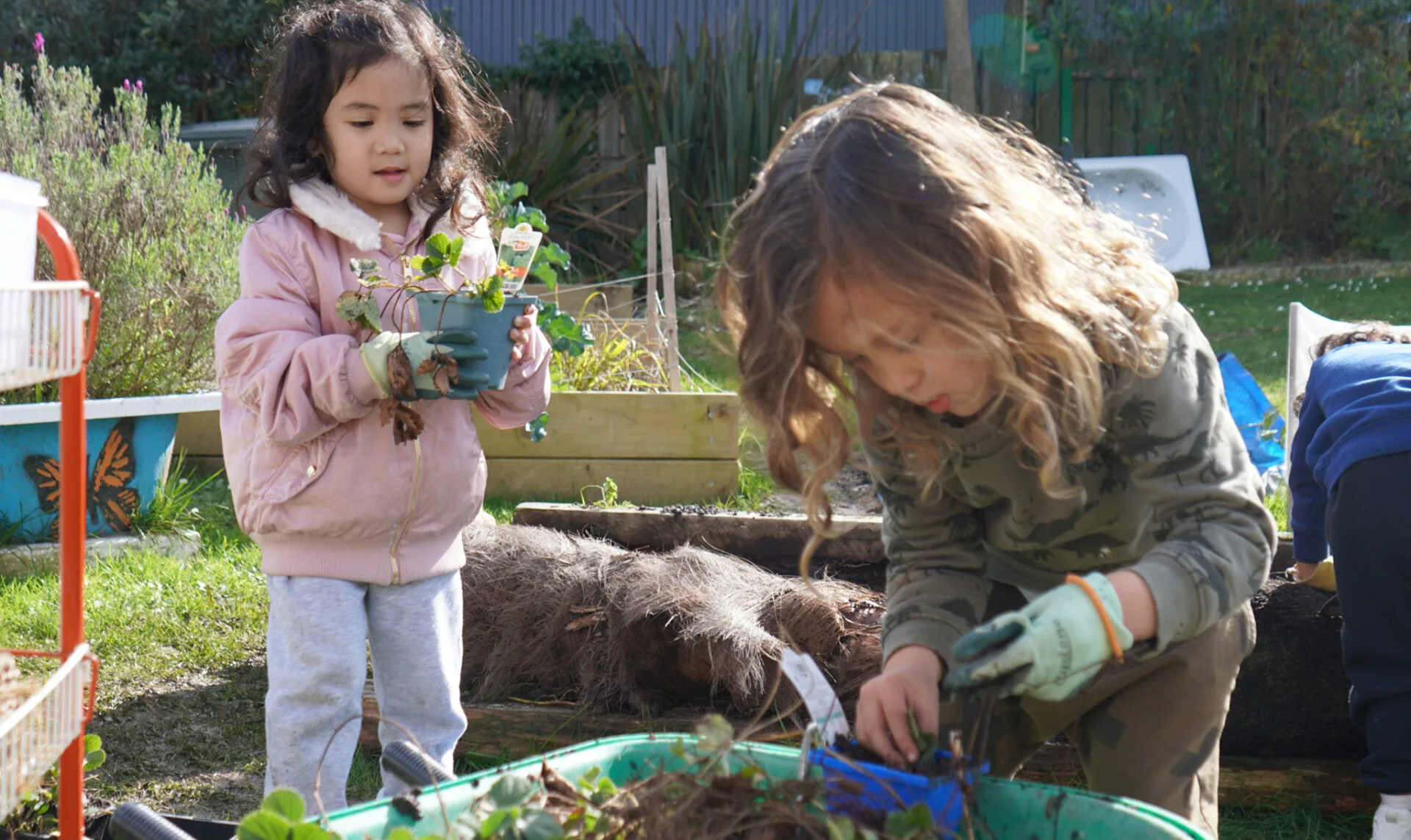
AKA has 47 Enviroschools, part of a nationwide programme where children connect with nature and take action to care for their environment. Tamariki explore their surroundings and work with their communities to make a real difference.
Every kindergarten is unique, shaped by its local ecology, culture, history, and community. Each kindergarten leads its own sustainability journey.
Our Principles
We follow five guiding principles:
- Empowered students
- Sustainable communities
- Learning for sustainability
- Māori perspectives
- Respect for diversity
How We Put Sustainability into Action
Place – Wāhi: Children explore nature and learn about their local land, culture, and heritage.
Programmes – Kaupapa Ako: Sustainability is part of daily learning. Tamariki take action on real issues, co-create projects, and share what they learn with others.
Practices – Tikanga: Eco-friendly practices like reducing waste, conserving water, and using energy wisely are part of everyday life. Progress is tracked and celebrated.
People – Tangata: Teachers, whānau, and the wider community work together to create a shared vision. Partnerships with tangata whenua and respect for diversity guide all decisions.
Enviroschools inspire children to care for their world, their community, and each other, learning that every action matters.
Our Enviroschool locations
KiNZ Mission Heights’ Enviroschool Journey to Green Gold
